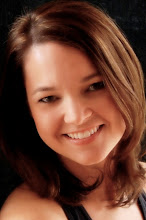This is a Sponsored post written by me on behalf of PBM Products. All opinions are 100% mine.
It just happens... No matter how much time, energy and emotion we spend on planning things perfectly, sometimes life just doesn't work out the way we expect it to. And if there was ever a season of life where this was more true, it would certainly be during parenthood.
My first head-on collision with this reality happened only a short time after my first child was born. I was firmly convinced that I would choose nature's way and breastfeed my children. What I never saw coming was that my body had its own plans that were in direct opposition to mine. My body simply refused to follow my expectations and I had to make the difficult choice to nourish my newborn with infant formula.
Because I never gave formula-feeding a second thought at any point during my pregnancy, I never had the opportunity to really do my "homework" about the costs, brands, benefits, etc. I just assumed, like many others, that only the most expensive name brand formulas were healthy and safe for my baby. We cut corners in as many areas of our finances as possible that first year to purchase the supposedly better brand. Oh, how I wish I knew then what I know now!
The following quote from Dr. Barbara Levine of Weill Cornell Medical College accurately describes my thoughts and feelings about name brand formulas at the time:
The contributors of the new 10th Edition of the Consumer Reports Best Baby Products write that they see no need for parents to choose expensive national brand infant formulas over their much more reasonable store brand counterparts sold at retailers like Walmart, Sam’s Club, Target, CVS, Kroger, Walgreens, and Babies R Us.
Not only are many new parents dealing with financial uncertainty from difficult economic times, but consumer confidence is also quite vulnerable at this point from the recent recall of Similac formulas because of the possibility of the presence of a small common beetle in their products.
Even though the benefits of breastfeeding are indisputable, it's not always an option for every mother. As parents we can now shop confidently for infant formulas to safely and healthfully nourish our children without being blindsided by all the hype, marketing and, most of all, the high price tag.
It just happens... No matter how much time, energy and emotion we spend on planning things perfectly, sometimes life just doesn't work out the way we expect it to. And if there was ever a season of life where this was more true, it would certainly be during parenthood.
My first head-on collision with this reality happened only a short time after my first child was born. I was firmly convinced that I would choose nature's way and breastfeed my children. What I never saw coming was that my body had its own plans that were in direct opposition to mine. My body simply refused to follow my expectations and I had to make the difficult choice to nourish my newborn with infant formula.
Because I never gave formula-feeding a second thought at any point during my pregnancy, I never had the opportunity to really do my "homework" about the costs, brands, benefits, etc. I just assumed, like many others, that only the most expensive name brand formulas were healthy and safe for my baby. We cut corners in as many areas of our finances as possible that first year to purchase the supposedly better brand. Oh, how I wish I knew then what I know now!
The following quote from Dr. Barbara Levine of Weill Cornell Medical College accurately describes my thoughts and feelings about name brand formulas at the time:
"Moms often experience feelings of guilt if they choose not to breastfeed, so they purchase expensive formula. But very few really know the truth about infant formula- A higher price does NOT equal better nutrition."Nutritionally, there is no reason to buy the much more expensive formulas sold by the big pharmaceutical companies. All infant formula marketing in the United States must meet the same nutrient guidelines and specifications set by the FDA, whether they are store brand or name brand. Historically, store brand (also known as private-label) formulas cost less because they are not heavily marketed or advertised and are not given away to hospitals for free. Those cost savings are then passed along to the consumer. According to some estimates, as much as $600 can be saved by new parents annually by choosing the cheaper store brand formula.
The contributors of the new 10th Edition of the Consumer Reports Best Baby Products write that they see no need for parents to choose expensive national brand infant formulas over their much more reasonable store brand counterparts sold at retailers like Walmart, Sam’s Club, Target, CVS, Kroger, Walgreens, and Babies R Us.
Not only are many new parents dealing with financial uncertainty from difficult economic times, but consumer confidence is also quite vulnerable at this point from the recent recall of Similac formulas because of the possibility of the presence of a small common beetle in their products.
Even though the benefits of breastfeeding are indisputable, it's not always an option for every mother. As parents we can now shop confidently for infant formulas to safely and healthfully nourish our children without being blindsided by all the hype, marketing and, most of all, the high price tag.

No comments:
Post a Comment